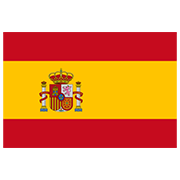Fiscal subject related
The fiscalization system in Spain is certainly around the corner. During the time there was a misunderstanding in the terms of who is obliged to respect those regulations from the subjective and objective perspective. If we consider an objective perspective, this will affect computer systems, POS systems, cash registers, or any other program that has been and will be used for issuing invoices/receipts in Spain.
But, because of the fact that currently there are a lot of systems that are used for sales transactions and different sales and similar documents, the question arises in the terms: precisely, which computer systems are affected by fiscalization in Spain?
The answer: only those used to issue invoices (including simplified invoices), that is, computerized billing systems (SIF), provided that they are used by those obliged to issue invoices (full or simplified, both to other businesses and to final consumers to whom the regulation approved by Royal Decree 1007/2023, of December 5, applies. However, it will not apply to other computer systems used to issue other types of supporting documents for the delivery of goods or provision of services.
Other news from Spain
Law that postpones the VeruFactu fiscalization obligation in Spain has been published.
 Spain
Author: Nikolina Basić
Spain
Author: Nikolina Basić
Spain’s Official State Gazette (BOE) has published Royal Decree-Law 15/2025, extending the mandatory adoption of VERI*FACTU-compliant invoicing systems under Royal Decree 1007/2023 to ensure an orderly and uniform fiscalization rollout. The new deadlines are 1 January 2027 for Corporate Income Tax taxpayers and 1 July 2027 for business owners and professionals under IRPF, giving companies and the... Read more



VeriFactu fiscalization implementation delayed again in Spain
 Spain
Author: Nikolina Basić
Spain
Author: Nikolina Basić
Spain has announced a one-year postponement of the Veri*factu fiscalization system, pushing mandatory adoption to 1 January 2027 for companies and 1 July 2027 for individual professionals. The new dates are not yet official, as they must still be confirmed through a Royal Decree in the BOE. The rollout of the Veri*factu system has been postponed for another year, according to an announcement follo... Read more



New document was uploaded: Checklist for the certification process in Spain
 Spain
Author: Stevan Car
Spain
Author: Stevan Car
The uploaded document provides a structured set of test cases for validating the fiscal and technical behavior of Point of Sale (POS) systems in Spain, aligned with fiscalization principles introduced under the Veri*Factu regime. Read more
Subscribe to get access to the latest news, documents, webinars and educations.
Already subscriber? Login


New document was uploaded: Certification process in Spain
 Spain
Author: Nikolina Basić
Spain
Author: Nikolina Basić
The purpose of this document is to explain the certification process of POS in Spain. Spain introduced fiscalization for the first time. Certification process in Spain is quite specific and handled as a self-verification procedure. Read more
Subscribe to get access to the latest news, documents, webinars and educations.
Already subscriber? Login


Fiscalization in Spain: outdated software in Spain
 Spain
Author: Nikolina Basić
Spain
Author: Nikolina Basić
Who bears the responsibility for outdated software in Spain? The responsibility for maintaining compliant sales software lies with the user, not the software provider. Read more
Subscribe to get access to the latest news, documents, webinars and educations.
Already subscriber? Login


Seamless Sales Continuity: How Verifactu Handles Billing Disruptions Without Stopping Business
 Spain
Author: Nikolina Basić
Spain
Author: Nikolina Basić
In Verifactu mode, temporary disruptions such as internet or hardware issues trigger an automatic retry process, ensuring billing records are resent hourly until successfully submitted. Discover more insights as follows. Read more
Subscribe to get access to the latest news, documents, webinars and educations.
Already subscriber? Login


New document was uploaded: The Royal Decree 254/2025
 Spain
Author: -----------
Spain
Author: -----------
This is the Royal Decree 254/2025, of April 1, amending Royal Decree 1007/2023, of December 5, approving the Regulation establishing the requirements to be adopted by computer or electronic systems and programmes that support the invoicing processes of entrepreneurs and professionals, and the standardisation of billing record formats. Read more
Subscribe to get access to the latest news, documents, webinars and educations.
Already subscriber? Login

